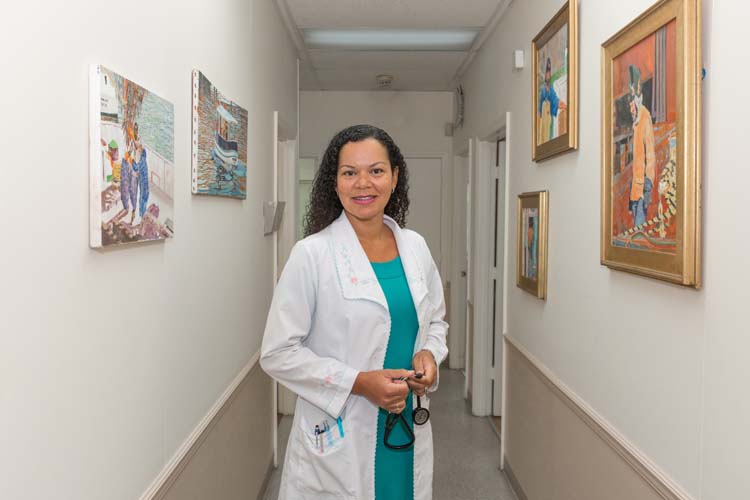
Researchers from the University of Texas at Austin believe their newly-created device, called the MasSpec Pen, may transform cancer treatment by vastly improving the accuracy of cancer surgery and reducing the risk of recurrence, and Vero Beach oncologist Dr. Georgia Daniela Shapiro agrees, saying the device has tremendous potential to more effectively and efficiently detect cancer cells during oncologic surgery.
When surgery is used as a treatment strategy for cancer, the goal is to detect and remove cancerous tissue, preventing it from spreading to other parts of the body. However, it can be difficult for surgeons to distinguish between healthy and cancerous tissue, which can result in surgeons removing healthy tissue to be on the safe side, making surgery more traumatic, or in cancer cells remaining in the body.
That’s where the MasSpec Pen comes in. Without getting too technical, the device works by identifying tissue metabolites – substances necessary for metabolism – that are unique to cancer cells, using an analytical technique called mass spectrometry.
In developing the MasSpec Pen, the research team “trained” the device’s software to distinguish between cancerous and non-cancerous tissue by inputting data from hundreds of human tissue samples. Later, when tested on 253 tissue samples from both healthy patients and patients with cancer, the device took around 10 seconds to identify cancerous tissue, with 96.3 percent accuracy.
Dr. Shapiro inserts one caveat in the face of these impressive results. “While it does have significant potential, it should be noted that there was a relatively small number of tissue samples utilized in the study,” she says. “As such, further confirmation of the results on a larger scale sample would be ideal.”
Currently, “frozen section analysis” (cryosection) is commonly used to assess tissues as being cancerous or non-cancerous. In this technique, a tissue sample is taken from the patient during surgery and transferred to a laboratory, frozen, and then assessed by a pathologist. But this is sometimes a slow process, which can increase a patient’s risk of surgery-related complications.
Vero’s Dr. Shapiro believes a potential alternative to cryosection, such as offered by the MasSpec Pen, is important. In addition to the slowness of the cryosection process, she says the MasSpec Pen “could help reduce the number of procedures, and thus reduce both the physical and emotional stress that is endured with repeated biopsies related to the continued presence of disease.”
Cancer is the second leading cause of death in the United States; only heart disease claims more lives. One of every four deaths in the United States is due to cancer. In 2016, more than 1.6 million new cases were diagnosed, and nearly 600,000 people died from various forms of the disease.
Study leader Livia Schiavinato Eberlin says, “If you talk to cancer patients after surgery, one of the first things many will say is ‘I hope the surgeon got all the cancer out.’ It’s just heartbreaking when that’s not the case. Our technology could vastly improve the odds that surgeons really do remove every last trace of cancer during surgery.”
Dr. Shapiro agrees, saying, “It is extremely exciting to see this type of technology on the horizon. For any patient and their family, a more accurate method to detect cancer – whether it be before surgery, during, or after – would be invaluable in the fight against cancer. It would also be incredibly impactful in helping alleviate the anxiety that patients and their loved ones often experience as they wonder if all the cancer cells were removed.”
The MasSpec Pen will have to undergo further testing and be approved by the FDA before it can be used in surgical settings. In the meantime, there is a device, called MarginProbe, which won FDA approval in 2013 for use in breast lumpectomies. It uses radio-frequency electrical fields to differentiate between cancerous and normal tissue in real time.
Dr. Shapiro practices as part of Scott, Weeks, McGarry & Shapiro, located at 1460 36th St in Vero Beach; the office number is 772-562-7777.



